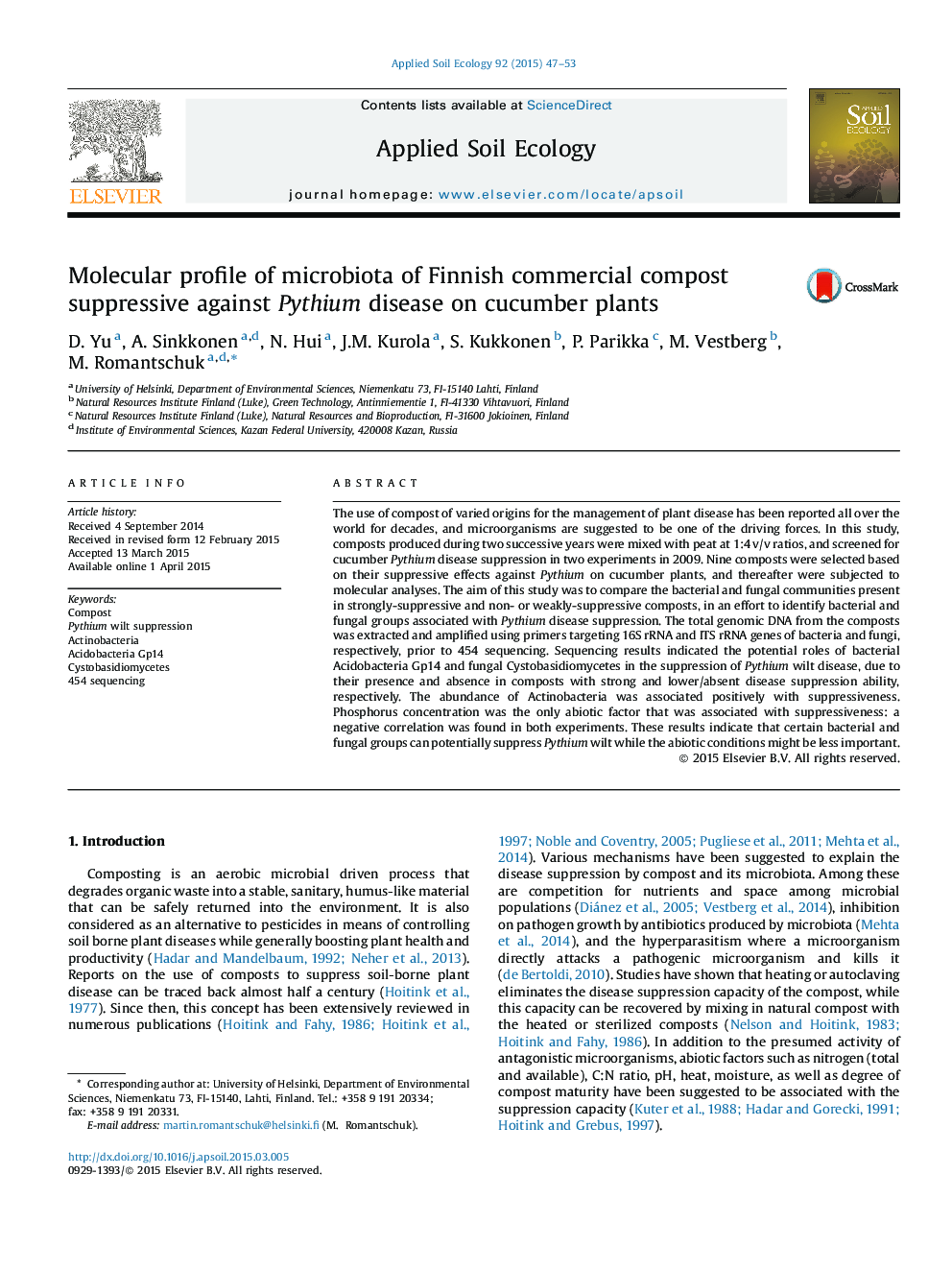| کد مقاله | کد نشریه | سال انتشار | مقاله انگلیسی | نسخه تمام متن |
|---|---|---|---|---|
| 4381992 | 1617791 | 2015 | 7 صفحه PDF | دانلود رایگان |

• Proteobacteria and Ascomycota were the dominant bacterial and fungal candidates.
• Actinobacteria enhanced the disease suppression in both experiments.
• Acidobacteria Gp14 and Cystobasidiomycetes potentially suppress Pythium wilt.
• Phosphorus concentration correlated negatively with disease suppression.
The use of compost of varied origins for the management of plant disease has been reported all over the world for decades, and microorganisms are suggested to be one of the driving forces. In this study, composts produced during two successive years were mixed with peat at 1:4 v/v ratios, and screened for cucumber Pythium disease suppression in two experiments in 2009. Nine composts were selected based on their suppressive effects against Pythium on cucumber plants, and thereafter were subjected to molecular analyses. The aim of this study was to compare the bacterial and fungal communities present in strongly-suppressive and non- or weakly-suppressive composts, in an effort to identify bacterial and fungal groups associated with Pythium disease suppression. The total genomic DNA from the composts was extracted and amplified using primers targeting 16S rRNA and ITS rRNA genes of bacteria and fungi, respectively, prior to 454 sequencing. Sequencing results indicated the potential roles of bacterial Acidobacteria Gp14 and fungal Cystobasidiomycetes in the suppression of Pythium wilt disease, due to their presence and absence in composts with strong and lower/absent disease suppression ability, respectively. The abundance of Actinobacteria was associated positively with suppressiveness. Phosphorus concentration was the only abiotic factor that was associated with suppressiveness: a negative correlation was found in both experiments. These results indicate that certain bacterial and fungal groups can potentially suppress Pythium wilt while the abiotic conditions might be less important.
Journal: Applied Soil Ecology - Volume 92, August 2015, Pages 47–53